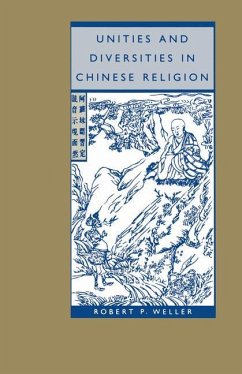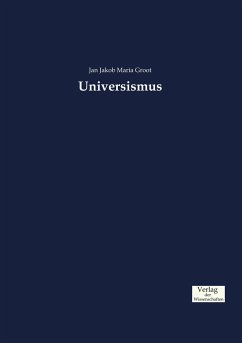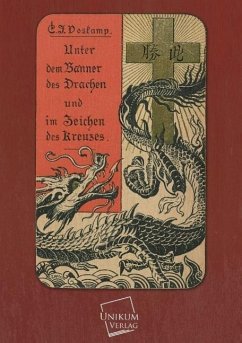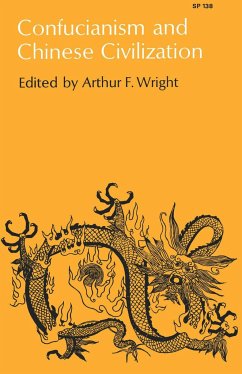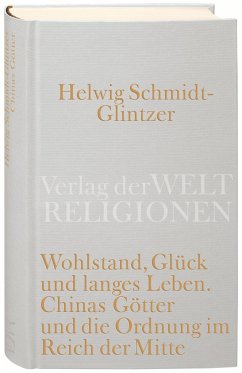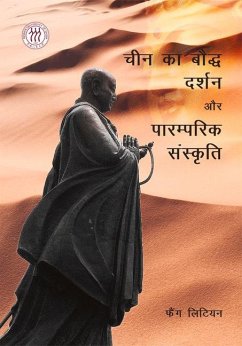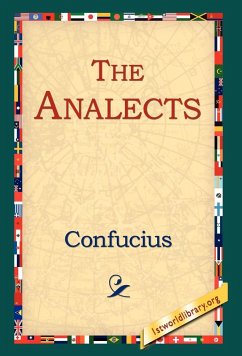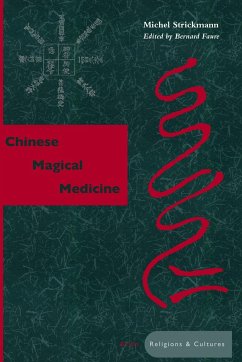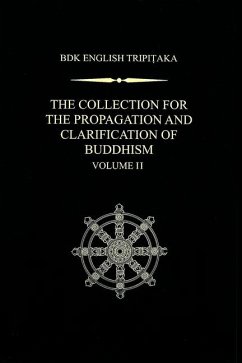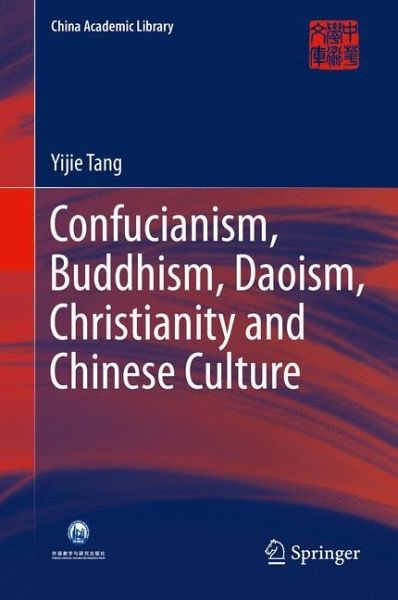
Confucianism, Buddhism, Daoism, Christianity and Chinese Culture
Versandkostenfrei!
Versandfertig in 6-10 Tagen
76,99 €
inkl. MwSt.
Weitere Ausgaben:

PAYBACK Punkte
38 °P sammeln!
This book collects the 25 most important articles written by Professor Tang since the 1980s, dealing extensively with issues of Confucianism, Buddhism, Daoism, Christianity and Chinese culture. In these articles, Professor Tang proves his value as a worthy successor to the Chinese philosophical tradition, while also open to the latest trends of thought both at home and abroad.The late Professor Tang Yijie (1927-2014) was a prominent professor at Peking University and China's top scholar on philosophy and Chinese studies. He spearheaded the Confucian Canon project (__), which seeks to compile a...
This book collects the 25 most important articles written by Professor Tang since the 1980s, dealing extensively with issues of Confucianism, Buddhism, Daoism, Christianity and Chinese culture. In these articles, Professor Tang proves his value as a worthy successor to the Chinese philosophical tradition, while also open to the latest trends of thought both at home and abroad.
The late Professor Tang Yijie (1927-2014) was a prominent professor at Peking University and China's top scholar on philosophy and Chinese studies. He spearheaded the Confucian Canon project (__), which seeks to compile all known classical works on Confucianism, comparable in scope and significance to the Complete Library of the Four Treasuries (____), the largest collection of books on Chinese history, which was commissioned by the Qianlong Emperor in the 18th century. Throughout his life, Professor Tang published scores of books and more than one hundred articles, offering enlightening insights into how to deal with issues that have historically troubled and continue to trouble people in modern society.
Among his numerous innovations, Professor Tang is especially remembered for introducing the concept of "harmony in diversity" ____ . In the context of "the clash of civilizations" championed by Samuel P. Huntington, Tang argued for harmony in diversity, holding that this principle can offer some clues to help enable peoples, nations, and regions with different cultural traditions to develop together while remaining unique.
note: _ represents Chinese character, please refer to BCC file.
The late Professor Tang Yijie (1927-2014) was a prominent professor at Peking University and China's top scholar on philosophy and Chinese studies. He spearheaded the Confucian Canon project (__), which seeks to compile all known classical works on Confucianism, comparable in scope and significance to the Complete Library of the Four Treasuries (____), the largest collection of books on Chinese history, which was commissioned by the Qianlong Emperor in the 18th century. Throughout his life, Professor Tang published scores of books and more than one hundred articles, offering enlightening insights into how to deal with issues that have historically troubled and continue to trouble people in modern society.
Among his numerous innovations, Professor Tang is especially remembered for introducing the concept of "harmony in diversity" ____ . In the context of "the clash of civilizations" championed by Samuel P. Huntington, Tang argued for harmony in diversity, holding that this principle can offer some clues to help enable peoples, nations, and regions with different cultural traditions to develop together while remaining unique.
note: _ represents Chinese character, please refer to BCC file.





